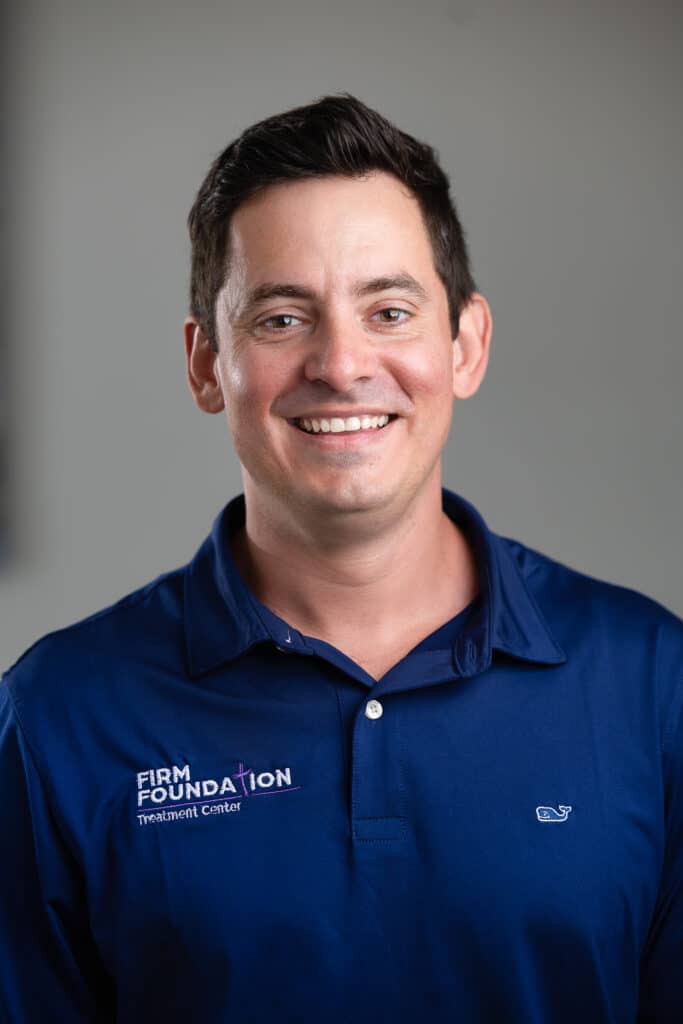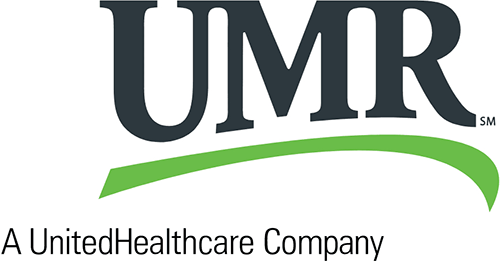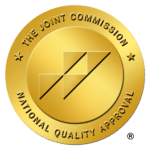Flexible, Christ-Centered Care Through Our Outpatient Program (OP)
At Firm Foundation Treatment Center in Woodstock, GA, our Outpatient Program (OP) offers a flexible treatment option for men in recovery who have reached a stable point in their journey. OP is ideal for clients who have completed higher levels of care, such as our Partial Hospitalization Program (PHP) or Intensive Outpatient Program (IOP), and are ready for more independence while still receiving support.
Our Christ-centered OP allows men to maintain their work, school, and family responsibilities while continuing to strengthen their sobriety. By incorporating evidence-based modalities such as Cognitive Behavioral Therapy (CBT), Dialectical Behavior Therapy (DBT), Motivational Interviewing (MI), Relapse Prevention, Family Systems Therapy, Eye Movement Desensitization and Reprocessing (EMDR), and Art Therapy, OP helps men address the ongoing challenges of recovery. Through weekly therapy sessions, clients receive the care and guidance needed to maintain long-term sobriety.
What is the Outpatient Program (OP)?
The Outpatient Program (OP) at Firm Foundation Treatment Center is designed for men who have achieved stability in their recovery but still benefit from ongoing therapeutic support. OP is the least intensive level of care we offer and allows clients to transition from structured treatment into full reintegration into their daily lives.
Clients in OP typically attend weekly therapy sessions, focusing on relapse prevention, emotional regulation, and maintaining the progress they have made in previous stages of treatment. OP provides a flexible schedule that allows clients to manage their personal and professional responsibilities while staying connected to the support system that has helped them achieve sobriety.
Our Christ-centered approach ensures that spiritual growth remains a central focus, empowering men to align their recovery with their faith.
Cognitive Behavioral Therapy (CBT) in OP
Cognitive Behavioral Therapy (CBT) remains a key part of our OP, helping clients continue to develop healthy thought patterns and behaviors. Addiction often arises from negative thinking patterns, and CBT helps clients maintain the mental strategies they need to avoid relapse.
How CBT Supports Recovery in OP:
- Maintaining Healthy Thinking Patterns: CBT helps clients stay aware of negative thoughts and replace them with healthier ones that support long-term recovery.
- Managing Cravings and High-Risk Situations: CBT provides clients with coping strategies to handle cravings, stress, and high-risk situations that could lead to relapse.
- Building Emotional Resilience: CBT focuses on strengthening clients’ emotional resilience, helping them manage their feelings without turning to substances.
Dialectical Behavior Therapy (DBT) in OP
Dialectical Behavior Therapy (DBT) helps men in recovery continue to manage their emotions and relationships in healthy ways. DBT is particularly effective for individuals who struggle with emotional regulation, impulsive behaviors, or maintaining healthy relationships.
How DBT Supports Recovery in OP:
- Emotional Regulation: DBT helps clients maintain the skills they have developed for managing difficult emotions and reducing impulsive behaviors.
- Interpersonal Effectiveness: Through DBT, clients learn how to build and maintain healthy relationships, improving their communication skills and reducing the conflicts that can lead to relapse.
- Mindfulness Practices: DBT incorporates mindfulness techniques, helping clients stay grounded and present, which is key to managing stress and staying focused on their recovery.
Motivational Interviewing (MI) in OP
Motivational Interviewing (MI) is an effective approach for helping clients stay committed to their recovery goals. Even after completing higher levels of care, some men may struggle with maintaining their motivation for long-term sobriety. MI helps clients revisit their reasons for recovery and strengthens their commitment to staying sober.
How MI Supports Recovery in OP:
- Reinforcing Motivation: MI helps clients reflect on their reasons for pursuing sobriety, reinforcing their motivation to continue making positive changes.
- Building Confidence: Through MI, clients build confidence in their ability to maintain sobriety and handle life’s challenges without substances.
- Strengthening Commitment to Recovery: MI encourages clients to set new recovery goals and remain committed to achieving them.
Relapse Prevention in OP
Relapse Prevention remains a central focus of our OP, as clients in this stage of recovery must remain vigilant about avoiding relapse. Our relapse prevention strategies help clients identify and manage triggers, develop new coping mechanisms, and maintain their progress.
How Relapse Prevention Supports Recovery in OP:
- Identifying Triggers: Clients work with their therapist to continually assess and identify new triggers that may arise as they reintegrate into daily life.
- Creating a Long-Term Relapse Prevention Plan: Each client develops a personalized relapse prevention plan that includes strategies for avoiding triggers, managing stress, and staying connected to a support system.
- Building Resilience: Through ongoing therapy, clients build emotional and mental resilience, equipping them to handle high-risk situations and maintain their sobriety.
Family Systems Therapy in OP
Family Systems Therapy is an important part of ongoing recovery for many clients. Addiction often damages family relationships, and ongoing work with loved ones is necessary to repair and rebuild trust. Family Systems Therapy helps families continue to heal and grow together.
How Family Systems Therapy Supports Recovery in OP:
- Strengthening Family Support: Family Systems Therapy encourages ongoing communication and healing between family members, helping create a supportive environment for the individual in recovery.
- Improving Relationships: Therapy provides a space for family members to continue working through conflicts and repairing damaged relationships.
- Setting Healthy Boundaries: Clients and their families learn how to set and maintain healthy boundaries, which is essential for long-term recovery and family harmony.
Eye Movement Desensitization and Reprocessing (EMDR) in OP
Eye Movement Desensitization and Reprocessing (EMDR) continues to play a role in helping clients heal from unresolved trauma. Many men use substances to cope with emotional pain, and EMDR helps reduce the emotional intensity of traumatic memories.
How EMDR Supports Recovery in OP:
- Processing Trauma: For clients who have experienced trauma, EMDR helps reduce the emotional burden of these memories, making it easier to stay sober.
- Reducing Triggers: EMDR addresses the root causes of addiction, reducing the emotional triggers that may lead to relapse.
- Building Emotional Stability: As clients heal from trauma, they develop stronger emotional resilience, helping them stay focused on their recovery.
Art Therapy in OP
Art Therapy continues to be a valuable tool for men in recovery, offering a creative outlet for expressing emotions and exploring their recovery journey. Through the process of making art, clients can gain new insights into their feelings and experiences.
How Art Therapy Supports Recovery in OP:
- Non-Verbal Expression: Art Therapy allows clients to express emotions that may be difficult to articulate in words, providing a deeper understanding of their inner world.
- Processing Emotions: Creative expression can help clients process complex emotions, reducing stress and emotional overwhelm that can lead to relapse.
- Building Confidence and Self-Esteem: Art Therapy encourages personal growth and self-expression, helping clients build confidence and a sense of accomplishment.
Christ-Centered Healing in OP
At Firm Foundation Treatment Center, our OP continues to incorporate faith-based support into every aspect of treatment. We believe that true healing requires a balance of mind, body, and spirit, and our Christ-centered approach helps men stay grounded in their faith throughout their recovery.
- Prayer and Reflection: Clients are encouraged to incorporate prayer and spiritual reflection into their daily routine, using their faith as a source of strength and guidance.
- Spiritual Counseling: Clients have opportunities for spiritual growth through Bible study, prayer groups, and spiritual counseling, helping them maintain their connection to their faith as they continue their recovery.
- Faith as a Source of Strength: By integrating faith into the recovery process, clients are able to draw on their spirituality as a powerful tool for maintaining sobriety.
Why Choose Firm Foundation Treatment Center for Outpatient Treatment?
Firm Foundation Treatment Center is dedicated to providing comprehensive, Christ-centered care for men at every stage of their recovery journey. Our OP offers a flexible and supportive environment where clients can continue to grow in their recovery while managing their personal and professional responsibilities.
- Experienced Therapists: Our licensed therapists are highly trained in evidence-based therapies, such as CBT, DBT, and EMDR, ensuring that clients receive the highest quality of care.
- Christ-Centered Healing: We integrate faith into every aspect of our OP, helping clients strengthen their spiritual connection as they continue their recovery journey.
- Personalized Treatment Plans: We tailor our OP to meet the unique needs of each client, providing individualized care that supports their long-term sobriety goals.
Testimonial
“Firm Foundation’s OP helped me transition back into my everyday life while still receiving the support I needed to stay sober. The combination of faith and therapy has been essential in keeping me on track.” — John, 42, Woodstock, GA
Get Started with Outpatient Treatment in Woodstock, GA
If you or a loved one is seeking ongoing support for addiction recovery, the Outpatient Program (OP) at Firm Foundation Treatment Center offers flexible, Christ-centered care. With evidence-based therapies like CBT, DBT, EMDR, and more, our OP provides the guidance and tools needed for long-term recovery. Contact us today to learn more about how OP can support your recovery journey.
Woodstock Outpatient Drug Rehab FAQs
How much is rehab in Atlanta?
The cost of drug rehab in Atlanta varies depending on the type of treatment program, length of stay, and level of care provided. Outpatient treatment programs, such as an intensive outpatient program (IOP) or partial hospitalization program (PHP), tend to be more affordable than inpatient rehab. Many treatment centers accept health insurance, which can help cover the cost of addiction treatment services. For those without insurance, some rehab centers offer sliding scale fees or financial assistance.
Is inpatient rehab better than outpatient?
Both inpatient and outpatient rehab programs serve different needs. Inpatient treatment provides a structured, immersive environment ideal for those with severe substance use disorder or co-occurring mental health issues. Outpatient treatment, including intensive outpatient and PHP, allows individuals to continue daily life activities while receiving addiction treatment. The right choice depends on individual needs, severity of drug addiction, and personal responsibilities.
How long can you stay in inpatient rehab?
The length of stay in an inpatient rehab program varies but typically ranges from 30 to 90 days. Some residential treatment programs offer extended care options for individuals needing long-term recovery support. The duration of treatment depends on factors such as addiction severity, progress in the recovery journey, and individualized treatment plans.
How expensive is drug rehab in Atlanta?
The cost of drug rehab in Atlanta depends on several factors, including the type of addiction treatment center, length of the rehab program, and level of care provided. Outpatient treatment is generally more affordable than residential treatment. Many recovery centers accept health insurance, and some offer financial assistance or payment plans to make substance abuse treatment more accessible.
How long does drug rehab last?
The duration of a rehab program varies based on the individual’s needs and the type of treatment program. Short-term outpatient treatment may last a few weeks, while intensive outpatient and PHP programs can last several months. Inpatient rehab typically ranges from 30 to 90 days, with aftercare and sober living programs offering continued support for long-term recovery.
What type of drug or alcohol addiction treatment is right for me?
The best treatment option depends on various factors, including the severity of substance abuse, mental health issues, and personal responsibilities. Those needing a highly structured environment may benefit from inpatient rehab, while individuals requiring flexibility may find an outpatient rehab program more suitable. Dual diagnosis treatment is recommended for those with co-occurring mental health conditions. A professional assessment at a reputable addiction treatment center can help determine the most appropriate treatment options.
Who is an ideal candidate for an outpatient treatment program in Georgia?
An ideal candidate for outpatient rehab in Georgia is someone who requires addiction treatment but can maintain responsibilities such as work, school, or family obligations. Outpatient programs, including IOP and PHP, are suitable for individuals with a stable home environment and a strong support system. These programs provide structured therapy sessions while allowing patients to continue daily life activities.
What are the benefits of men’s outpatient rehab programs in Atlanta, GA?
Men’s outpatient rehab programs in Atlanta offer several benefits, including gender-specific support, flexible scheduling, and access to group therapy and individual counseling. These programs focus on relapse prevention, life skills development, and mental health support, helping men achieve long-term recovery. Outpatient treatment also allows participants to transition smoothly into sober living while continuing their recovery process.
What are the top outpatient rehab centers for men in Atlanta, GA?
Atlanta is home to several highly rated outpatient rehab centers specializing in men’s addiction recovery. When selecting a rehab program, it’s essential to consider factors such as accreditation (e.g., Joint Commission), treatment plans, levels of care offered, and aftercare support. A reputable men’s recovery center will provide a comprehensive approach to substance abuse treatment, including cognitive behavioral therapy, relapse prevention strategies, and transitional support for long-term success.













